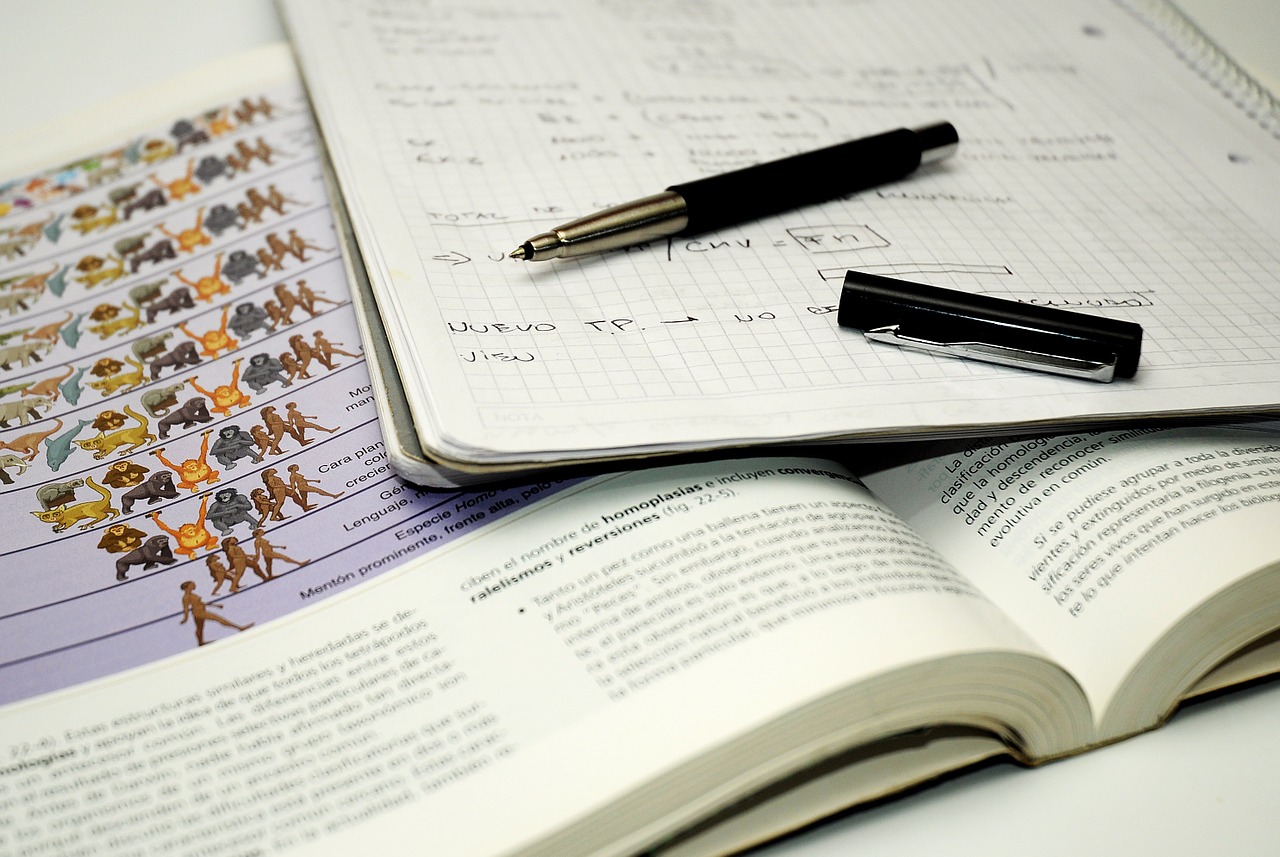
5 Study Tactics To Help You Get That A+
5 Study Tactics To Help You Get That A+
Everybody has their own set of study tactics. What might work for one person may not necessarily work for another person. However, it's always good to try different ways of doing things because taking on a new approach could seriously change your life for the better. Here are 5 study tactics that you can use to help you get that A+.
 Pxhere
Pxhere
#1 Learn things in "chunks"
In psychology, "chunking" is the theory that people will remember things a whole lot better if they learn things in smaller chunks rather than cramming everything all at once. The rationale behind this idea is based on the fact that our brains are able to turn short-term memories into long-term ones when it is slowly fed information. When you cram your brain with facts and data, they may only stick around for a short period of time and that could lead to forgetfulness, which is the one thing you don't want to happen during an exam.
 Needpix
Needpix
#2 Use visual and auditory cues
Humans are visual and auditory beings, which means we process information based on what we see and what we hear. When it comes to our memory, we are able to remember things more clearly with images and sound because they serve as useful triggers for the recollection of information. That said, try to study using diagrams, charts, audio files, and even music. All of those things can help condition your brain to recall certain pieces of information.
 Wallpaper Flare
Wallpaper Flare
#3 Study before you go to sleep
A collaborative study from Harvard and Notre Dame found that studying right before going to sleep could help students retain information better. Sleep helps to "stabilize the memories" we form during the day while staying awake can interfere with that process. With that in mind, you may want to skip the all-nighters and try to get your study and sleep schedules on track. Getting seven to eight hours of sleep a night will do wonders for your mental sharpness and alertness.
 Wallpaper Flare
Wallpaper Flare
#4 Take lots of breaks
Once you're on a roll, it can be tempting to just keep burning through your study material, but that may be counterproductive. Research has shown that we can only really stay focused and productive for around three hours, and any longer than that, our minds start to wander elsewhere. Make sure you schedule short, intermittent breaks during your study session to regain your focus. Getting through all of your lectures isn't necessarily the same as understanding all of your lectures.
 WIkimedia Commons
WIkimedia Commons
#5 Review your lectures right after
You can train your brain to retain information better through repetition. The more your brain is fed the same information, the higher the chance it will hold onto that information. With that in mind, it is always a good idea to review your lectures right after you've sat through them. It may be a nuisance to do that, but the more information you are able to remember early on, the less your brain will have to work later when you have to study for your exams.
 Wikimedia Commons
Wikimedia Commons
READ MORE

Curb appeal doesn’t stop at your property line, and unfortunately, your neighbor’s overgrown lawn or junk pile can absolutely hurt your sale price. But what can you do about it?

Stuck in a credit rut? A low credit score can feel like a roadblock but, hey, it’s not unsalvageable. There are things you can do that’ll boost your score and your confidence pronto.

Apart from business deals, bank accounts, and monitoring the stock market, some billionaires have hobbies that are surprisingly down-to-earth—or outright unexpected. So, what are the richest people’s favorite hobbies?

If you’re trying to sell your home, there are many things that can decrease your property value—but even the experts were surprised by potential buyers’ biggest turn-off.

Buying a house with a shared fence might seem simple—it's just a fence what could go wrong? Well, it's all fun and games until your neighbor neglects their side and suddenly wants you to pay for upgrades.

The world of Pokémon card collecting has grown from a childhood hobby into a high-stakes game for serious collectors, investors, and nostalgic fans alike. From one-of-a-kind tournament trophies to mysterious misprints and elusive promos, these cards are the crown jewels of the Pokémon Trading Card Game.
Disclaimer
The information on MoneyMade.com is intended to support financial literacy and should not be considered tax or legal advice. It is not meant to serve as a forecast, research report, or investment recommendation, nor should it be taken as an offer or solicitation to buy or sell any securities or adopt any particular investment strategy. All financial, tax, and legal decisions should be made with the help of a qualified professional. We do not guarantee the accuracy, timeliness, or outcomes associated with the use of this content.
Dear reader,
It’s true what they say: money makes the world go round. In order to succeed in this life, you need to have a good grasp of key financial concepts. That’s where Moneymade comes in. Our mission is to provide you with the best financial advice and information to help you navigate this ever-changing world. Sometimes, generating wealth just requires common sense. Don’t max out your credit card if you can’t afford the interest payments. Don’t overspend on Christmas shopping. When ordering gifts on Amazon, make sure you factor in taxes and shipping costs. If you need a new car, consider a model that’s easy to repair instead of an expensive BMW or Mercedes. Sometimes you dream vacation to Hawaii or the Bahamas just isn’t in the budget, but there may be more affordable all-inclusive hotels if you know where to look.
Looking for a new home? Make sure you get a mortgage rate that works for you. That means understanding the difference between fixed and variable interest rates. Whether you’re looking to learn how to make money, save money, or invest your money, our well-researched and insightful content will set you on the path to financial success. Passionate about mortgage rates, real estate, investing, saving, or anything money-related? Looking to learn how to generate wealth? Improve your life today with Moneymade. If you have any feedback for the MoneyMade team, please reach out to [email protected]. Thanks for your help!
Warmest regards,
The Moneymade team













